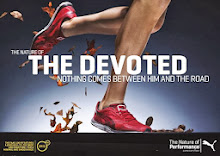I bought The Alchemist for a friend who later gave it to me after reading it. When I started reading it, I was expecting it to be a book about some wise sage whose world wise ways would have earned him the dubious title, "The Alchemist." And the alchemy in this case would be knowledge about how the world and especially the human condition, works and unravels.
My expectations were was a little off the mark. Instead of presenting a framework about how individuals can advance themselves beyond their mundane existence and overcome challenges and realize their fullest potential, its Paulo Coehlo's attempt at presenting his own worldview. A spiritual kind of metaphysics. A panpsychist world of omens and legends. Panpsychism is the theory that all matter has some form of consciousness.
Before reading The Alchemist , I had read Paulo Coehlo's Manual of the Warrior of light. It left some lingering interest about what that writer could write and hence my reading of the Alchemist, which is more reknown, notably read even by Bill Clinton.
The Alchemist is a captivating story written in metaphors, some explained through an interview that appears at the back of the book, some unexplained, or some the author is not aware of, or is not interested in interpreting and would rather the reader decides what the metaphor means to them. And whether they are metaphors at all.
It is a beautifully written story about a Shepherd boy whose journey for his personal legend leads him to meet the alchemist, someone who knows the soul of world. The storyline is fine but at the end, it is just an empty story that leaves the reader wondering what is there to learn about the events. It reads like a religious tract because it mostly talks of one believing and offers no tangible explanation, or more importantly, verifiable evidence that the world has a soul for instance, that water and stones have a soul and so on. So in a sense, it is mystical. There is nothing wrong with being mystical but I expected better from a writer of Coehlo's calibre. I now think that he is a man who has travelled far in his spiritual journey but he has wrapped his questions into boxes of mysteries and he now surrounds himself with these boxes. He now sees some of the boxes as gifts from his lessons and his struggles. Boxes that he leaves unopened and he looks at with wonderment and love yet he does not understand what is contained in them. Or what they can unravel.
I think he stopped asking himself the hard questions, or he found the quest so difficult and tiring that at one point, he stopped asking further questions and decided instead to enjoy them for what they are and trust that what they contain is good and beautiful. He crafted for himself a metaphysical worldview that explains boxes and their unseen contents and contented himself with basking in its glow rather than pick a hammer and tong and have a go at the boxes, one after the other.
As an illustration, at one point in an excerpted interview, he is asked whether human souls and souls of stones are different. He answers by saying he doesn’t know but that "I only know that I am alive...But I try to find good questions and not good answers"
This is where we part ways. This is manure. It is an attitude that fosters laziness and encourages an idle acceptance of our gaps of knowledge rather than a relentless pursuit for an understanding of the world and our existence. I am disappointed that Paulo Coehlo can sit up there and tell us that it is okay not to know and to content ourselves with "mysteries" and "spiritualism." That I find unacceptable. Scientists are engaged in serious research and this author who is advertised as some sort of guru tells us answers are not that important? All I can say to him and his ilk is "step aside." Because when you stop searching, your story is over.
If I would have bought the answer “you can’t know everything” to questions like “who created God?” when I started my personal journey, my journey could have ended in blissful ignorance in a few days. I strongly feel Coehlo does not live up to his billing. Examining one's life requires patience, courage, fortitude and patience and it is hard work through and through. Shortcuts and settling for what sounds good and beautiful should be left for feel-good religions and new age hucksters. The Alchemist sells Coehlo as the latter.
Friday, December 26, 2008
Subscribe to:
Post Comments (Atom)

No comments:
Post a Comment